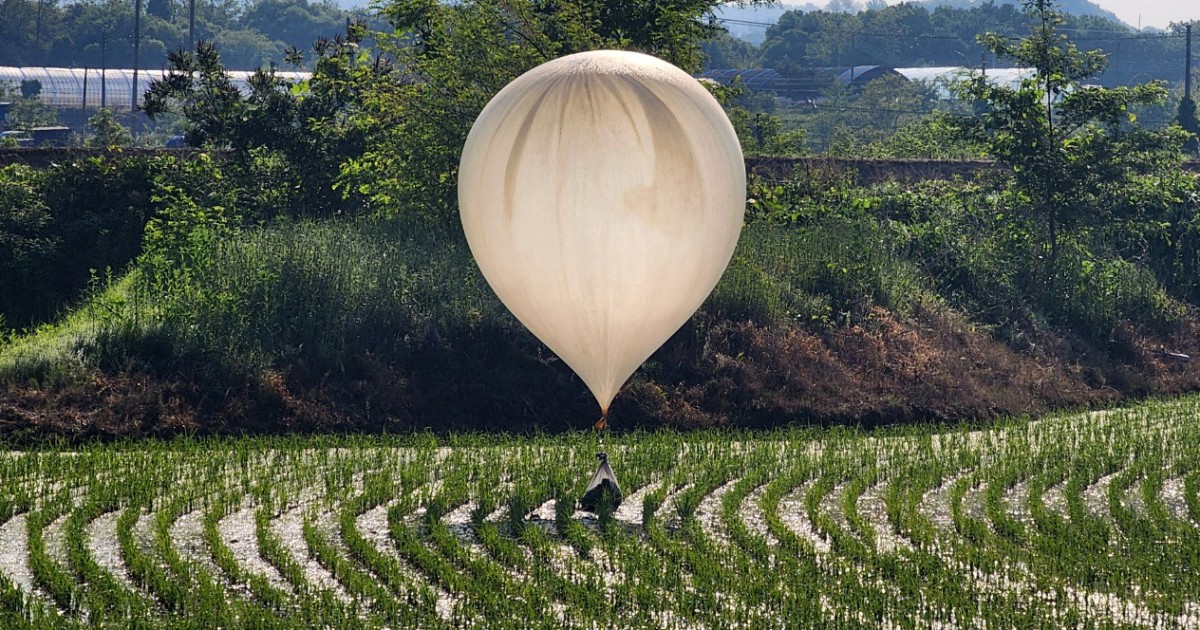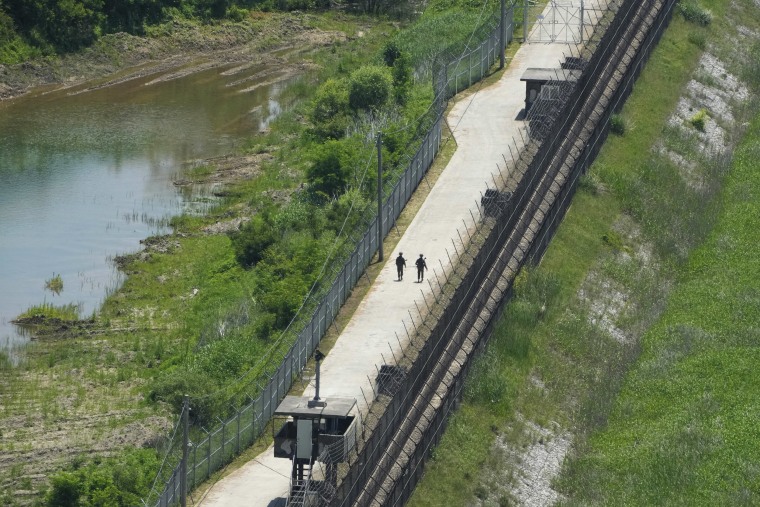
South Korea and North Korea have been engaged in a new round of tensions after North Korea launched hundreds of balloons carrying trash into South Korean territory. The latest incident has prompted South Korea to consider suspending a military agreement aimed at easing front-line animosities between the two countries.
According to reports, North Korea has sent over 400 balloons filled with used toilet paper, cigarette butts, and other waste materials across the border. The South Korean government has condemned the move as a provocation and an act of retaliation against anti-Pyongyang propaganda campaigns by South Korean activists.
The military agreement in question was signed in 2018 during historic summit meetings between the two Koreas, aimed at reducing military tensions and improving relations. However, North Korea declared last year that it was no longer bound by the pact and has since deployed troops and weapons at guard posts near the border.
The latest incident marks a significant escalation in tensions between the two countries. South Korea had previously warned of unendurable measures against North Korea for sending trash balloons over the border, including blaring propaganda from loudspeakers positioned at the border directed at the North.
North Korea has reacted angrily to these campaigns, claiming that they are a threat to its control of public opinion and psychology. The country has also accused South Korean activists of sending balloons with USB sticks loaded with K-pop music videos and dramas, which it sees as a form of cultural invasion.
The tensions between the two countries have been simmering for years, with military action and weapons tests being a common occurrence. The latest incident comes amid renewed concerns over North Korea's nuclear capabilities and missile testing.
Despite the ongoing tensions, some experts believe that the latest incident may be an opportunity for both sides to engage in dialogue and find a peaceful solution to their long-standing conflict. However, others warn that the situation could escalate further if neither side is willing to back down from their respective positions.



